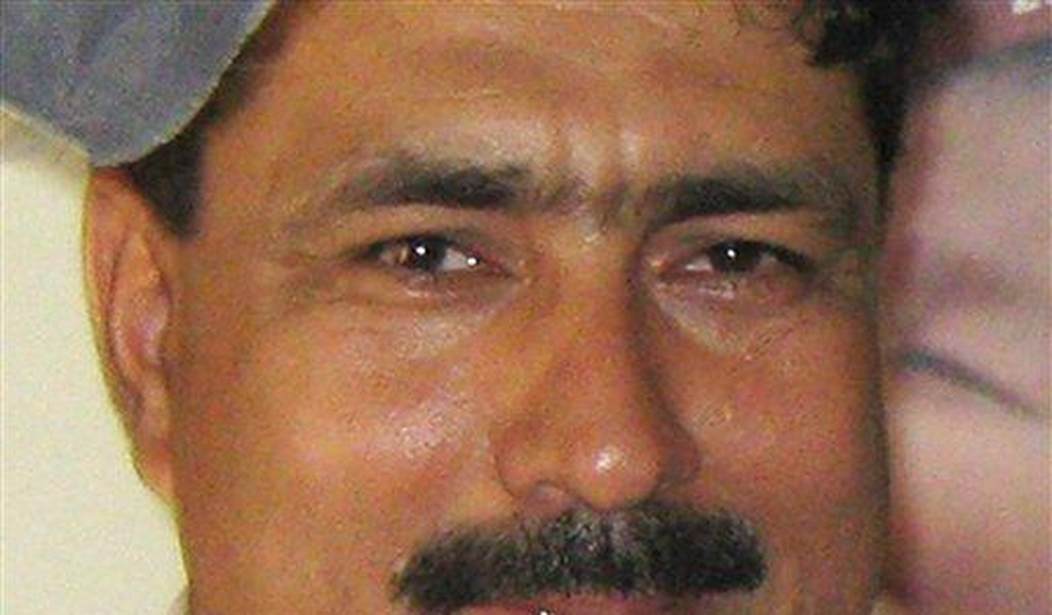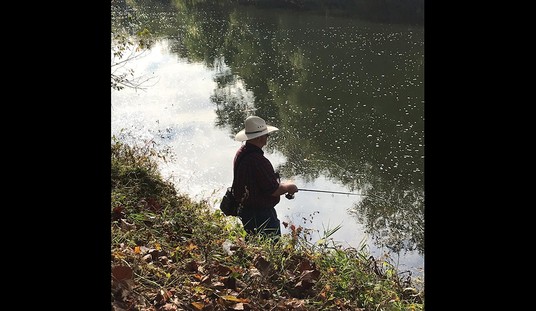Exactly 10 years ago this weekend, the longest, largest manhunt in modern history ended when SEAL Team 6 blasted into a fortified housing compound in Abbottabad, Pakistan. There, members killed Osama bin Laden, the al Qaeda mastermind behind the 9/11 attack.
The clandestine raid into another country was the culmination of a frustrating, deadly manhunt that had lasted 10 years, ending with a more intense focus on that housing compound. Word of the successful assassination half a world away on an otherwise quiet Sunday night prompted mass demonstrations by thousands of Americans chanting “USA USA” and, believe it or not, “CIA CIA.”
What isn’t as widely known – intentionally, it seems – is the murky role of a country Pakistani doctor named Shakil Afridi in confirming the suspected presence of the world’s most wanted man under the guise of a local vaccination program.
Twenty days after the SEAL raid, which was a major international embarrassment to the alleged American ally Pakistan, Afridi was arrested by that country’s notoriously duplicitous Inter-Services Intelligence agency.
He has been imprisoned ever since, reportedly tortured at times and tried for various crimes, none of them for helping the United States, for reasons of national pride.
Afridi is currently serving a 33-year prison term for the death of a former patient.
American officials claim they have made repeated attempts to get Afridi released and resettled with his family in the United States.
The U.S. has given Pakistan more than $5 billion in civilian assistance and another billion in emergency assistance since 2009, which would seem to provide valuable leverage. But that country has so far refused to free the man who would be treated as the hero who helped bring to justice the terrorist leader responsible for the deaths of 3,000 Americans.
Or was Afridi really a hero? Was he perhaps set up as an innocent fall guy to cover the identity of the real Pakistani who carefully tracked a longtime bin Laden messenger to that Abbottabad compound, the lead that launched the final eight-month hunt?
It had been a frustrating manhunt. Besides ousting Afghanistan’s fundamentalist Taliban government that hosted terrorists, a major reason behind the Allied invasion a month after 9/11 was the capture of bin Laden.
In 2002, U.S. forces were closing in on the fleeing terrorist leader in the isolated Tora Bora cave complex in eastern Afghanistan’s rugged mountains. However, an American newspaper reported that bin Laden was being tracked by his satellite phone. Hours later, the phone was turned off and the terror leader’s trail went cold for almost 10 deadly years.
As often happens in the world of espionage and international intrigue, what really happened in this Afridi Affair is a hard thing to nail down because of all the conflicting motives and interests.
We do know that the regular appearance of that messenger noted by CIA agents in Pakistan first called attention to the unusually large compound with the tall walls and third-floor balcony barricade that prevented views inside.
As usual in the intelligence business, it was a mounting accumulation of tiny but suspicious details that built the case to attempt the risky raid.
At times, the messenger would leave the compound and travel nearly 100 miles away just to make a cellphone call.
No one living inside ever seemed to leave. No garbage ever left the place. It was always burned in a courtyard.
Agents walked by the compound trying to grab glimpses or photos of anyone or anything there. Using drones and satellite surveillance, U.S. intel even analyzed the laundry on the compound’s clothesline, determining it was about the right volume for the family known to orbit bin Laden. It was the best lead yet.
Someone, presumably a Pakistani, was tracking that messenger and monitoring. But post-raid interest was steered toward Afridi. He came from humble beginnings and was a 1990 graduate of the Khyber Medical College in Peshawar and the father of three.
They and their mother, a teacher at a government school, went into hiding for fear of militant reprisals. One of Afridi’s lawyers was assassinated.
Afridi oversaw a vaccination program supported by international charities. The most widely-circulated version is that he or one of his workers visited the bin Laden compound under the guise of vaccinating the children and others for polio.
Their real goal was to obtain blood or fluid samples from family members to match with the terror leader’s DNA obtained from his home country of Saudi Arabia.
Barack Obama and aides wanted as much certainty as possible before launching an aggressive assault on the sovereign territory of a professed ally with unforeseeable consequences.
A B-2 bombing raid or drone strike were under consideration. But those risked collateral neighborhood damage and vaporizing any compound inhabitants, denying evidence they got their man.
In the end, a post-midnight surgical strike by Special Operators was chosen as the best method, which also enabled collection of a trove of intelligence material on-site.
Such teams were routinely performing 10 or 12 counterterrorism missions per night in Afghanistan. SEAL Team 6 was on leave stateside, but summoned back to action, according to a recent riveting Politico account.
Planners realized capture was a necessity if bin Laden surrendered, though few thought he would. In the end, al Qaeda’s leader is said not to have surrendered. He was shot in the face among other places, making visual identification difficult. Conveniently, the operators had brought with them a rubberized body bag.
Next day, after positive ID, he was dumped in the Indian Ocean leaving no shrine for his faithful.
Unfortunately, the boasts of administration officials about the invaluable intelligence gathered alerted al Qaeda associates to flee before the follow-up raids of special operators.
Afridi was arrested 20 days later. He has been charged variously over the years with treason, murder, aiding terrorists and a local warlord.
With Donald Trump’s 2016 election, hope rose that the Pakistanis would release Afridi as a goodwill gesture, much as Iran released American hostages hours into Ronald Reagan’s first term. That did not happen despite a Trump campaign promise to secure Afridi’s freedom.
The doctor’s case has since dimmed as a worthy cause for official American attention. He remains in solitary confinement in prison, allegedly for his own protection.
But the Afridi Affair is yet another object lesson for any future foreign nationals tempted to assist Americans operating in their land. The U.S. withdrawal at the end of the Vietnam War was so hasty that thousands of local collaborators and local contractors were left behind for imprisonment and “reeducation camp” sentences under the new Communist rulers.
The same stranding is underway now in Afghanistan as the last 2,500 U.S. troops of Obama’s 100,000-plus are coming home, ending America’s longest combat war.
Bin Laden may be dead. But – oh, look! — the same fundamentalist Taliban forces are poised to regain control there.














